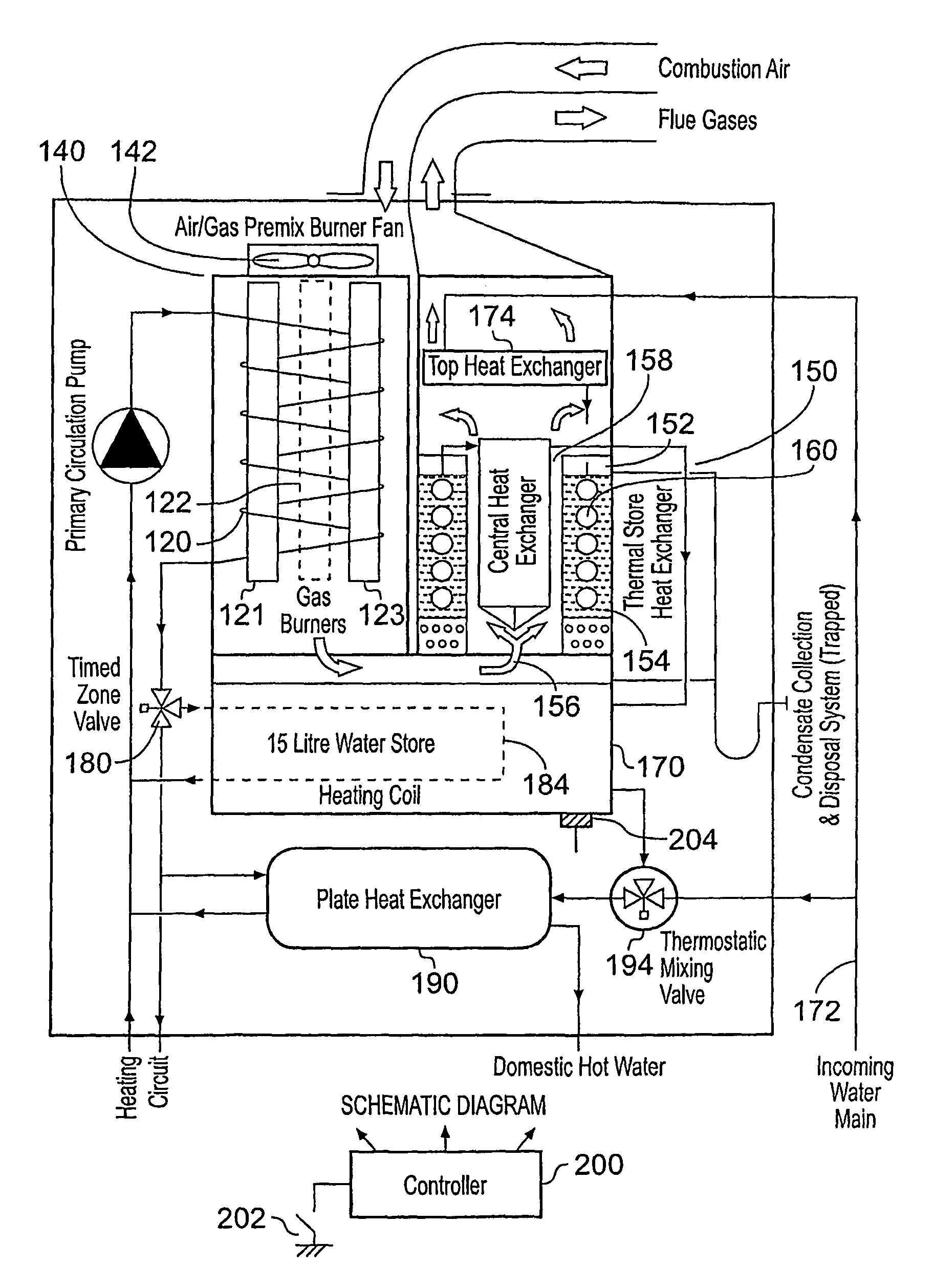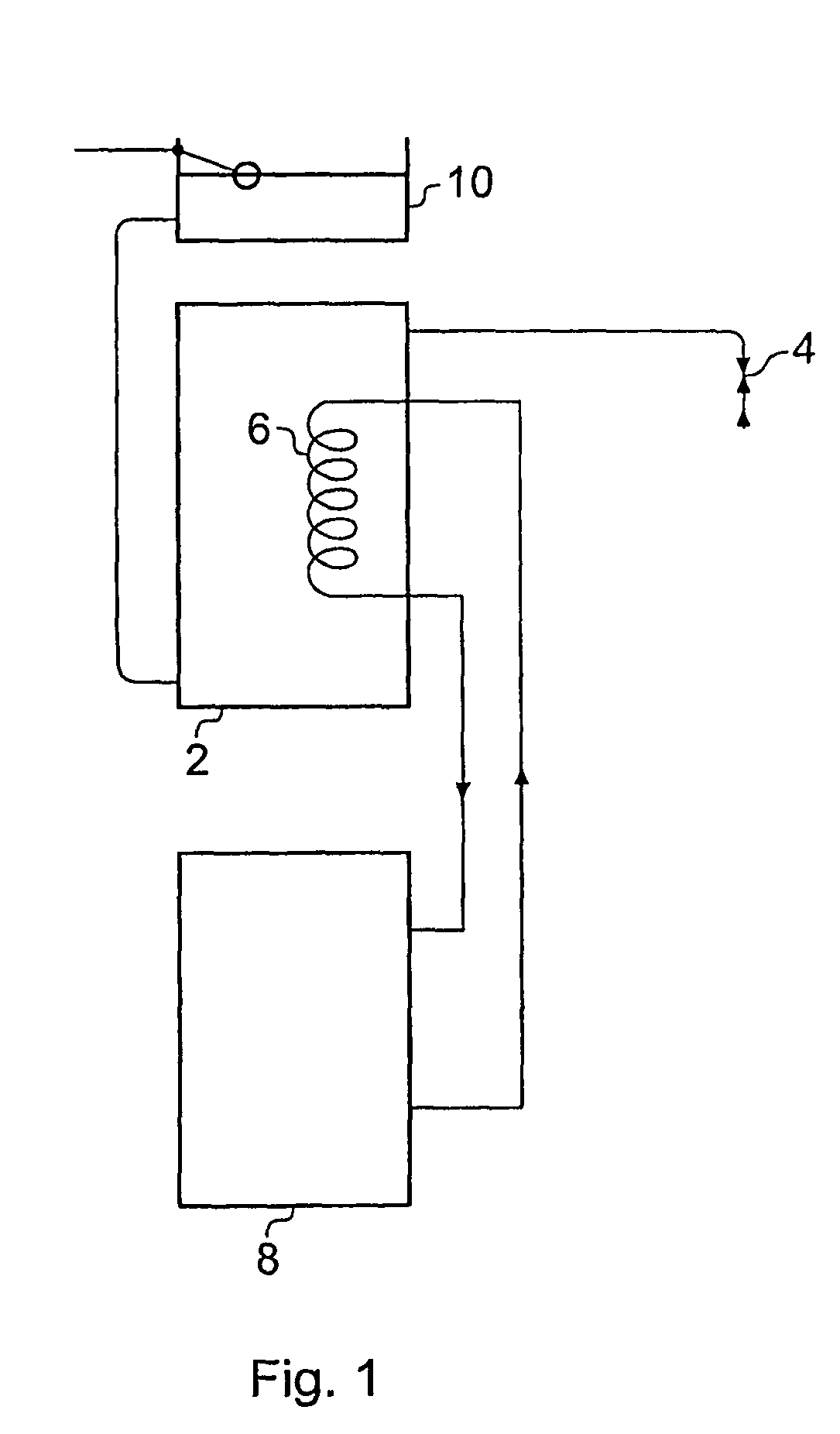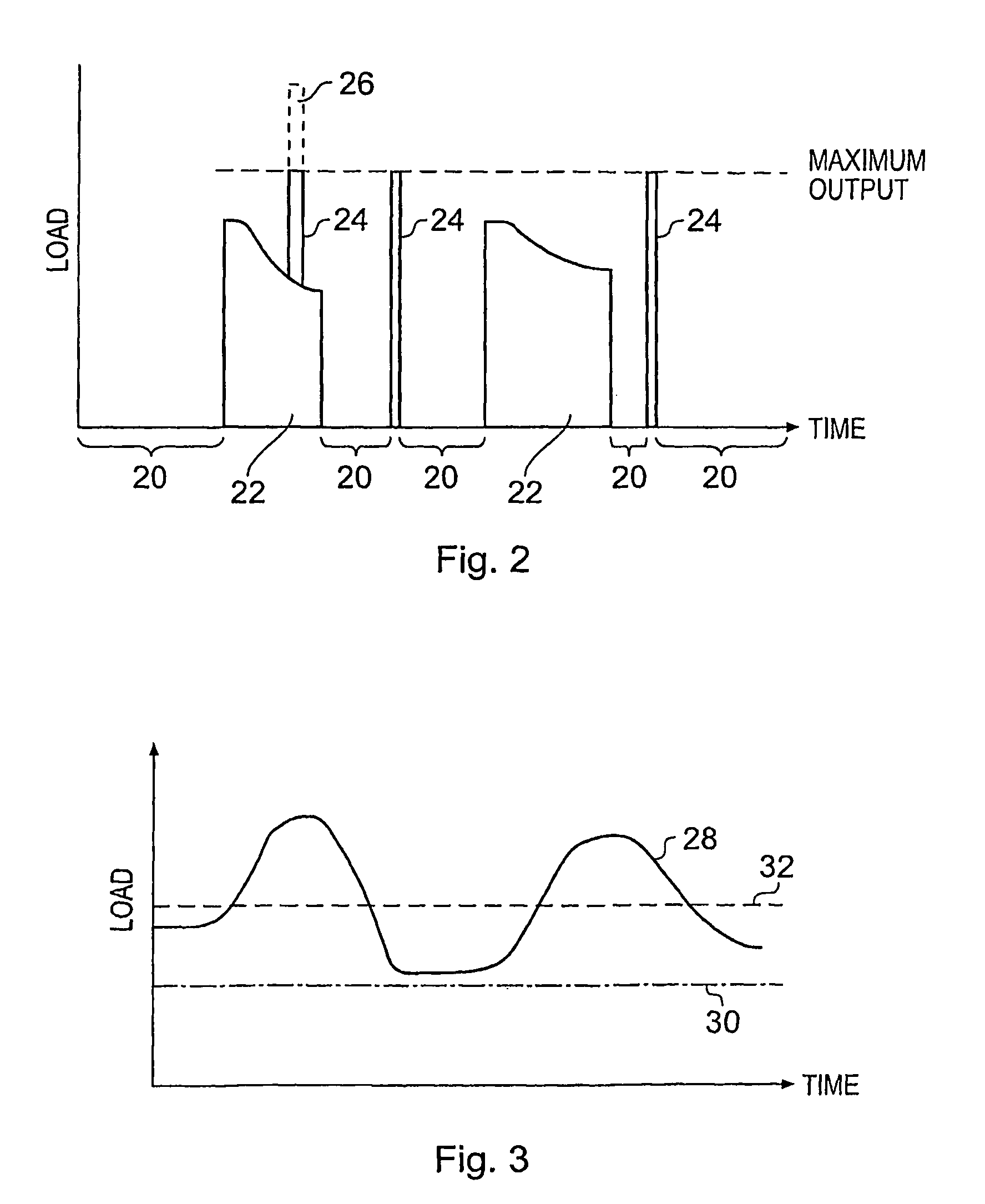Heating system
a heating system and boiler technology, applied in the field of heating systems, can solve the problems of inefficiency of large boilers with large heat output, small boilers with relatively small heat outputs, and inability to adequately supply the heating needs of large buildings, so as to reduce the amount of heat that needs to be imparted by boilers, work less hard, and fuel consumption.
- Summary
- Abstract
- Description
- Claims
- Application Information
AI Technical Summary
Benefits of technology
Problems solved by technology
Method used
Image
Examples
Embodiment Construction
[0023]There is a general desire to achieve boilers, whether domestic or industrial, that occupy as small a space as reasonably possible whilst maintaining efficiency. Additionally users want heat output, for example to provide hot water for washing, quickly.
[0024]One solution to providing hot water quickly was to provide a tank which held water that had been warmed to a desired hot water output temperature. Thus, as shown in FIG. 1 a storage tank 2 was connected so as to deliver warmed water form an upper region of the tank, for example, for running a bath. The tank 2 has a heater or heat exchanger therein such that the water can be warned to a desired temperature for use. In this example a heat exchanger 6 is warmed by a fuel burning boiler 8. Water is admitted into the tank 2 via a header tank 10.
[0025]This solution to providing hot water has several drawbacks.[0026]1) The tank looses heat—so the water requires periodic heating even if no water is drawn from the tank. This is inef...
PUM
 Login to View More
Login to View More Abstract
Description
Claims
Application Information
 Login to View More
Login to View More - R&D
- Intellectual Property
- Life Sciences
- Materials
- Tech Scout
- Unparalleled Data Quality
- Higher Quality Content
- 60% Fewer Hallucinations
Browse by: Latest US Patents, China's latest patents, Technical Efficacy Thesaurus, Application Domain, Technology Topic, Popular Technical Reports.
© 2025 PatSnap. All rights reserved.Legal|Privacy policy|Modern Slavery Act Transparency Statement|Sitemap|About US| Contact US: help@patsnap.com



